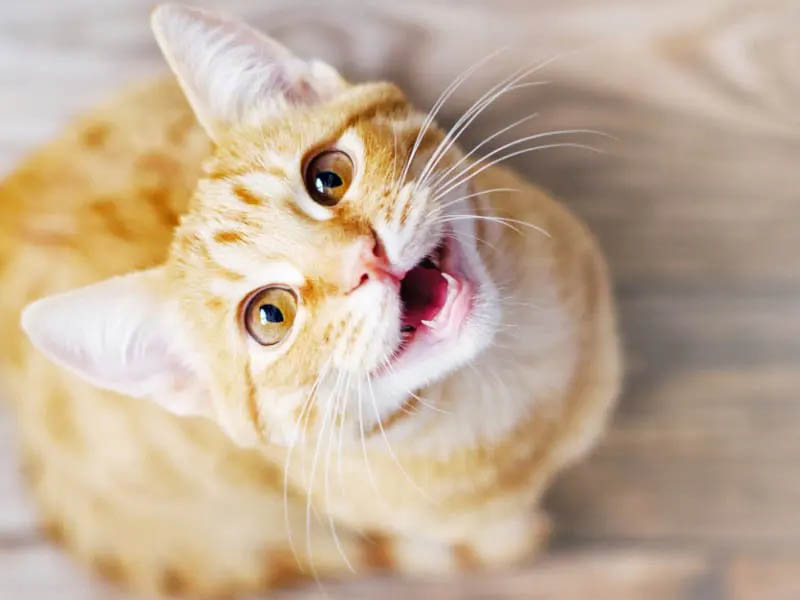
Why Is My Cat Meowing So Much: 9 Common Reasons for Excessive Meowing
This post may include affiliate links. Please read my disclosure policy.
A while back, my cat, Olivia, started meowing excessively for no apparent reason. When she would meow, it sounded like she was in a bit of distress. But when I approached her, she acted normal and friendly.
If your cat is meowing excessively, this article will help you decode your cat’s meow and figure out what they’re really trying to tell you.
What Is Excessive Vocalization?
Excessive meowing in your cats refers to a behavior where a cat meows more frequently or loudly than what is considered typical for them. Excessive cat meowing can be characterized by persistent and intense meowing throughout the day or night, often accompanied by other signs like restlessness, pacing, or attention-seeking behavior.
Why Your Cat Won’t Stop Meowing
I consulted The Catvocate, Veterinarian Dr. Liz Bales, who is an expert on cat behavior. And what she told me was gold!
She told me that there isn’t one single reason for a cat’s excessive vocalization. In fact, there could be many reasons. The good news is, once you understand your cat, you figure out just what they need and why they’re meowing so much.
There are nine common reasons why cats meow excessively. Most are benign, but some will need to be addressed by a professional.
Your cat may meow a lot because they:
- Are greeting you
- Feel lonely
- Want to mate
- Are hungry or thirsty
- Feeling sick
- Want attention
- Have impaired cognition (common in senior cats)
- Are bored
- Are stressed or anxious (e.g., they have no direct access to a clean litter box)
In order to figure out which reason is behind your cat’s meow, we need to understand their behavior a bit better. Then, we’ll dive into some dos and don’ts about reacting to your cat’s cries.
1. They’re Greeting You
Your cat might just be trying to say “hello.”
After you’ve been away, it’s not unusual for your kitty to run and greet you at the front door and give you a sweet meow. She may also be inclined to greet new visitors.
This greeting may be lengthy and is likely just your cat’s way of telling you how much they missed you.
Watch my full interview with Dr. Bales below.
2. Your Cat is Lonely
Despite cats’ reputation for being loners, they actually do get lonely.
In a recent survey, nearly one out of ten cat parents reported their cats showing signs of separation anxiety when their owners leave the house.
And if you’re home but not spending time with your cat, meowing a lot may be their way of expressing their loneliness.
Try spending some time with your cat, grooming them, cuddling, or talking to them for 20 minutes two times a day. You may notice your cat becomes less vocal after doing this regularly.
3. They Want to Mate
Unspayed or unneutered male and female cats that meow excessively at night may be their way of attracting a mate.
Unspayed female cats make a very specific yowling meow when they are in heat. A male cat can also hear these specific yowls and even smell a female in heat, resulting in excessive meowing. Spaying or neutering them will end this behavior.
If this is the case, your cat’s behavior is perfectly normal. You’ll likely notice it stops once your female or male cat is spayed or neutered.
There are many health benefits associated with “fixing” your feline, not to mention that your kitty won’t be contributing to pet overpopulation!
4. Their Needs Aren’t Being Met
Your cat’s excessive meowing may mean you need to check their food and water supply, similar to how kittens meow when they’re hungry, thirsty, or cold. Is there food and water available, and if so, are they eating and drinking it?
If your cat is rubbing against your leg when you walk by their dish, chances are, they want you to fill it up.
However, if your cat isn’t touching their food and water, there may be a couple of reasons why.
Your cat may simply not like the food, or they may have a medical issue that’s causing them to lose their appetite. If this is the case, of course it’s best to visit your veterinarian to rule out any health issues. Cats also frequently develop a skin allergy to some plastics, so use a ceramic or glass feeding bowl.
If they’re not drinking their water, they may be thirsty, but perhaps experiencing “whisker fatigue.”
Since cats use their whiskers to sense much of their world, they’re very sensitive. Repeated contact with the edge of their bowl may cause irritation to their whiskers, causing them not to eat or drink, even when they’re thirsty or hungry.
If this is the case, try using a fountain, like the one shown later in this article.
Also ensure your feline friend’s litter box is kept relatively clean. No one likes a clogged-up or full toilet, so neither will your cat. Check if their litter box is still accessible to them as well.
On the topic of litter boxes, ensure you have at least one litter box per feline family member, plus one extra. For finicky cats, make sure it is large enough for them to get fully inside and be able to turn around. Having multiple locations for boxes is also important if you have more than one kitty.
5. They’re Sick
She could be meowing because something is truly wrong. As our cats age, they often develop health issues, so she may have pain or she could be confused.
Dr. Liz Bales says hyperthyroidism can also be a culprit. She says,
“Cats who become hyperthyroid meow a lot, particularly overnight. Hyperthyroidism is a disease most commonly seen in cats over 8 years old.”
If you can’t figure out why your cat is meowing, your cat seems ill, or her meowing is excessive, it’s important to have a talk with your veterinarian to rule out any underlying conditions.
6. They Want Attention
If your cat comes up to you, rubs against your leg, and meows or purrs, you can bet that she is just seeking some attention.
This is a bit different from loneliness. They may crave attention even if you’ve been around to give it to them. They might simply want to share experiences with you, like looking out the window or playing.
Cats love interactions with their family, so it’s important that we show them how much we care for them by giving them that attention.
7. Their Cognition is Impaired
As felines age, they may develop cognitive issues, just like humans often do.
Their excessive meows may be out of boredom, confusion, anxiety, or habit.
If your senior cat is meowing excessively, it’s best to visit your veterinarian to rule out anything serious as well as to learn how to make them comfortable in their precious senior years.
8. They’re Bored
As any parent of a toddler knows, boredom can lead to some less-than-desirable behavior. It’s really no different with cats!
Especially if your cat is the only feline in the home (like my Olivia was for some time), she may become restless and look for a way to be entertained.
Just because cats are rather independent creatures doesn’t mean they don’t need mental and physical stimulation in their environment.
Feline enrichment is a hot topic these days because so many house cats are overweight or obese (about 50%!) since they don’t get enough exercise or opportunities to use their natural instincts.
Keep reading below for some advice and product solutions on enriching your cat’s environment.
9. They’re Stressed or Anxious
Excessive vocalization is one symptom of cat anxiety.
Meeting new people, losing family members (fur or human), or loud noises can all cause your cat to become stressed.
Change in their environment, even as subtle as closing once-opened doors, can cause your cat stress.
When stress is prolonged, your cat may develop anxiety. This anxiety can make your cat meow louder or more frequently than normal.
See this resource page for more help on dealing with pet anxiety.
What Does My Cat Mean When They Speak?
Pet parents are often cognizant of their kitty’s various meows, but when they start making excessively loud or even soft constant meows that’s uncharacteristic of them, along with any unnatural body language or other cues, it’s helpful to know what their meowing may mean.
| Meow Type | Meaning |
| Short meow | General greeting or acknowledgment. |
| Prolonged meow | Request for attention or interaction. |
| Multiple meows | Excitement or anticipation. |
| Chirping meow | Expression of curiosity or interest in something. |
| Trills | Friendly greeting, often used between cats or humans. |
| Loud, low-pitched meows | Discomfort, pain, or distress signal. |
| High-pitched meows | Frustration, annoyance, or impatience. |
| Rumbling meows | Contentment, often heard during kneading or cuddling. |
| Yowls | Indication of stress, mating behavior, or territorial disputes. |
| Hisses or growling meows | Aggression or warning. |
Now that you’ve figured out why your cat meows so much, it’s time to do something about it!
Dos and Don’ts of Dealing with a Cat that Doesn’t Stop Meowing
- Don’t ignore your cats meowing without establishing the reason. Remember, there’s something causing her to be vocal. Even if you think your cat might just be meowing only because of boredom or to gain attention, make your best attempt to establish the reason.
- Do find a source of entertainment for your cat. Your cat needs to play and keep busy. Adopting another cat to keep your current kitty company is an option for some. However, if that’s not an option, or you already have multiple cats, try out some new kitty products to keep her entertained. My cat, Olivia, loved keeping busy with this Cat Activity Play Mat. If you decide to get a second cat, introduce them slowly to avoid other unwanted behaviors, such as fighting or inappropriate urination.
- Don’t punish your cat for meowing. Punishing your cat for meowing isn’t kind or effective. Dr. Liz Bales advises to never hit your cat, yell at your cat, or spray her with water. These techniques don’t work and will make your cat scared of you. Getting to the root of the problem is always the best course of action.
- Do talk to your veterinarian. If you can’t figure out what your cat needs or wants, it’s time to have a conversation with your veterinarian. Your kitty may have a health concern that needs to be addressed. Don’t put this off — cats are great at hiding illness, so if you so much as have a hint of suspicion there’s a health issue, see the vet.
- Don’t reward bad behavior. If it’s excessive attention that your cat is seeking, don’t give in to her every want. Dr. Bales says, “If you know your cat is healthy and safe, their needs are met, and your cat is meowing for something you don’t want to give – like endless treats – don’t give in. If you give in, you have told your cat that endless meowing works and they will just keep doing it.” Rather, focus on good behavior. Reward her with attention when she’s been calm and quiet. Your kitty will catch on to what you respond to.
“If you know your cat is healthy and safe, their needs are met, and your cat is meowing for something you don’t want to give – like endless treats – don’t give in. If you give in, you have told your cat that endless meowing works and they will just keep doing it.”
~ Dr. Liz Bales, “Catvocate”
- Do make sure your kitty has a smart setup for feeding time. If you want to provide a mentally and physically stimulating meal time (healthiest for your cat), you can use Doc & Phoebe’s Indoor Hunting Cat Feeder. Make your cat work for her food! For her, it won’t be work, it will be more like play because her natural instincts to hunt, pounce, and play will engage! You also need to ensure your kitty has enough water and feels encouraged to drink.
Dehydration can cause health issues in kitties, which may also cause excessive meowing. This Catit Flower Fountain was Turtle’s favorite.
There are some real primal reasons that most pets enjoy drinking from running water and “hunting” for their food, even if it seems weird to us humans.
Plus, water fountains alleviate whisker fatigue, mentioned earlier.
FAQs About Cats Meowing
Why Is My Cat Meowing Differently?
A kitty’s meow might sound different for various reasons, but according to PetMD, a common one is an upper respiratory infection, similar to a cold, which can give them a hoarse voice. Other potential causes for a change in meow include laryngitis, laryngeal paralysis, dental disease, or even tumors. It’s also possible that environmental factors or stress are altering your cat’s vocalizations.
If the meow’s pitch has changed, it could indicate an emotional state; a low pitch may suggest your cat is unhappy or stressed, while a high pitch could point to pain or try to gain your attention. Make sure to monitor for any other signs of illness and consult a veterinarian to identify the cause and get appropriate treatment.
Why Is My Cat Always Hungry and Meowing?
According to PetMD, a cat that’s always hungry and frequently meowing may be exhibiting signs of hyperthyroidism, like aging cats or kitties who are experiencing weight loss. Hyperthyroidism often occurs alongside other health issues like hypertension or kidney disease. It’s important for cats displaying these symptoms to undergo a veterinary exam and possibly lab tests to check their thyroid function.
Other potential medical reasons for a cat’s increased hunger and the frequency of cats’ meow include conditions like diabetes and parasitic infections. Behavioral factors, such as boredom and anxiety, can also result in cats meowing excessively. Make sure to tailor your cat’s diet to their specific life stage and health requirements. If you notice a sudden change in the way your cat meows or even their eating habits, seek your veterinarian’s opinion.
Why Is My Cat Meowing Only at Night?
Cats meowing at night might do so for various reasons, ranging from natural nocturnal activity to seeking attention, boredom, or hunger. Health issues, as mentioned, such as hyperthyroidism, hypertension, kidney disease, or cognitive dysfunction in older cats, can also cause constant meowing. It’s possible that the quiet of the night makes a cat’s meows more noticeable to their human companions.
To address your kitty’s nocturnal chorus, maintain a consistent routine and ensure your cat’s needs for play and affection are met to help reduce stress and anxiety that may cause meowing. A veterinary check-up can rule out any underlying health issues while keeping your cat active during the day and providing a comfortable sleeping area can help minimize nighttime meowing.
The Tail End
Above all, we want our pets to be healthy and happy. Taking the time to address concerns with our pets will lengthen and add joy to their lives. Certainly, that’s something we all want for our beloved animals!


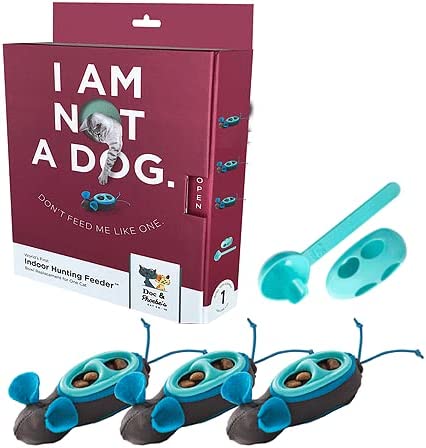
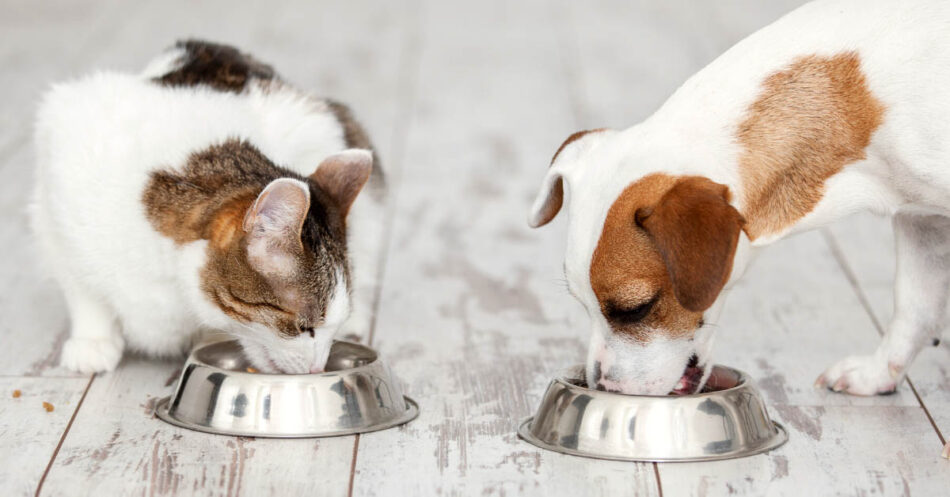

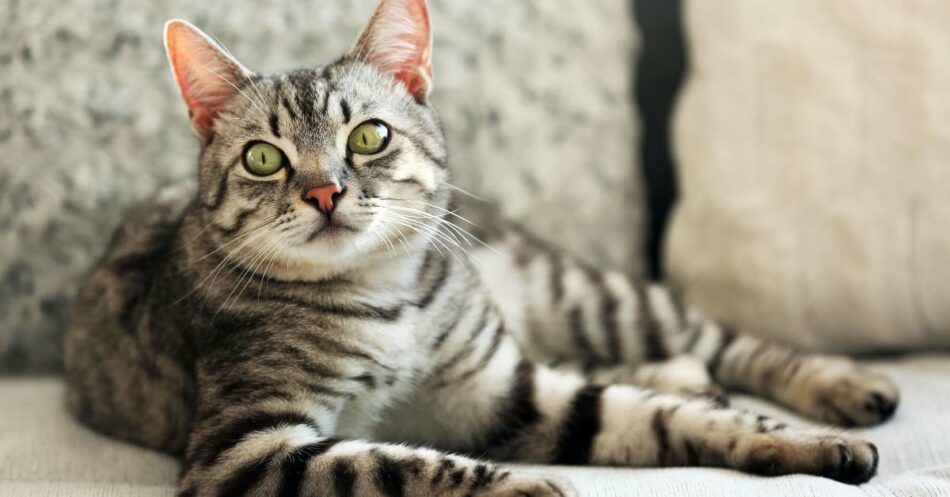
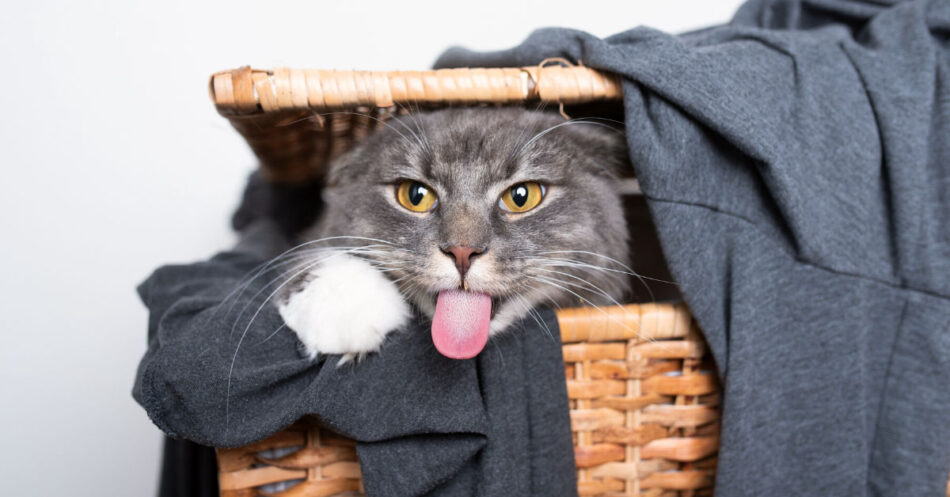
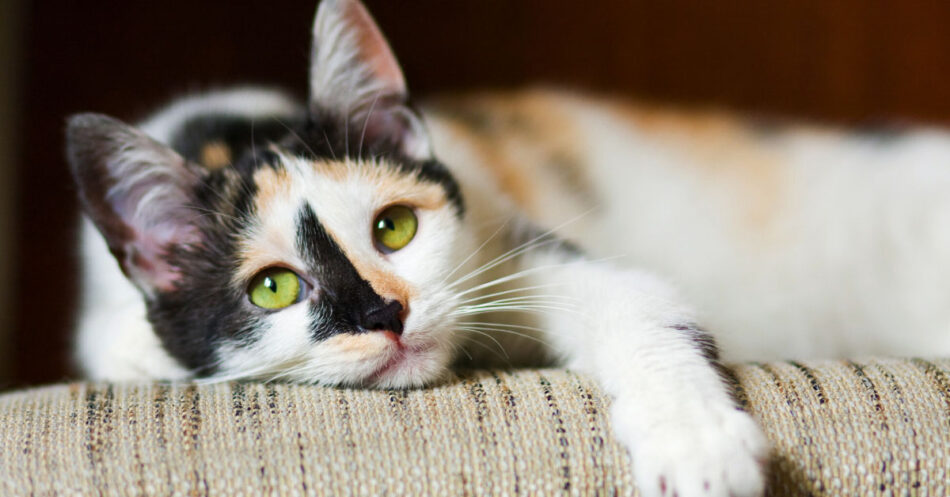
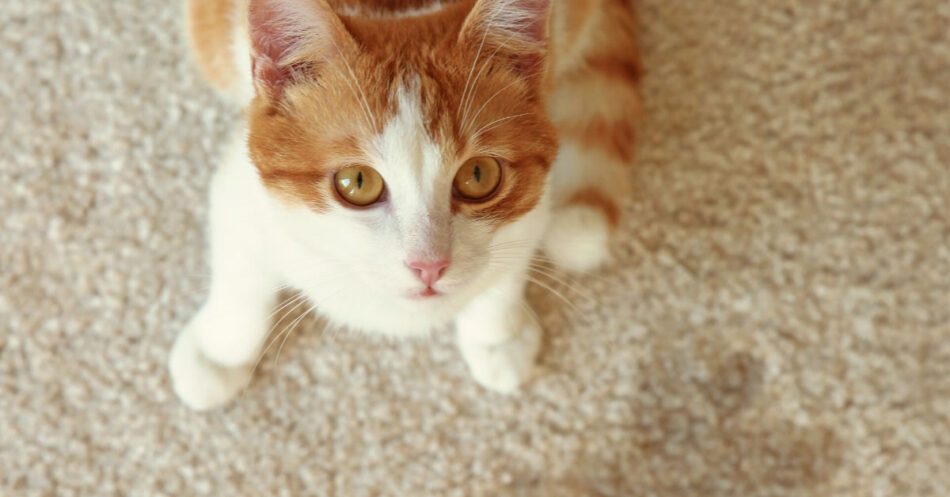
Enjoyed reading this, very good stuff, appreciate it.